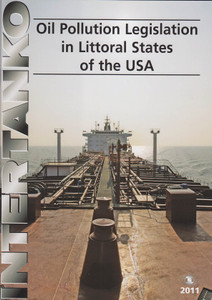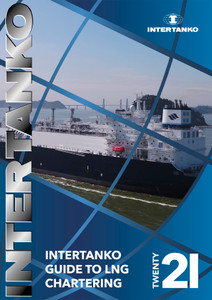
This is a practical guide to measures that can be implemented on board to improve energy efficiency and emissions performance within a tanker fleet. It provides guidance on how to implement a Ship Energy Efficiency Management Plan, as well as providing a template for developing a Company Energy Efficiency Management Plan.
This Guide has been developed based on INTERTANKO’s Best Practice on Tanker Emissions and Energy Efficiency (INTERTANKO Best Practice) and outlines measures that may be implemented on board to improve energy efficiency within a tanker fleet.
It is a practical tool, providing a basis for tanker operators to implement a Ship Energy Efficiency Management Plan, as recommended by the International Maritime Organization (IMO) in its circular – MEPC.1/Circ.683. The Guide also provides a template for developing a Company Energy Efficiency Management Plan.
INTERTANKO’s Guide for a Tanker Energy Efficiency Management Plan has been developed based on INTERTANKO’s Best Practice on Tanker Emissions and Energy Efficiency (INTERTANKO Best Practice). The Guide is a practical tool for use by operators seeking to enhance energy efficiency and improve emissions performance within their tanker fleet and will provide a basis for tanker operators to implement a Ship Energy Efficiency Management Plan as recommended by the International Maritime Organization (IMO) in its circular – MEPC.1/Circ.683.
The Guide provides a template for developing a Company Energy Efficiency Management Plan (sections 2 and 7) and goes into detail regarding the measures that may be implemented on board to improve energy efficiency within a tanker fleet (section 3 to 6).
1. Introduction
1.1. INTERTANKO’s Best Practice on Tanker Emissions and Energy Efficiency
1.2. IMO’s Ship Energy Efficiency Management Plan (SEEMP)
1.3. Oil Companies ‘Energy Efficiency and Fuel Management’ Guidance
2. Establishing the Company and Ship Energy Management Plans
2.1. Company Energy Efficiency Management Plan
2.2. Ship Energy Efficiency Management Plan (SEEMP)
3. Voyage Optimisation Programme
3.1. Speed selection optimisation
3.2. Optimised route planning
3.3. Trim Optimisation
3.4. Charterer involvement
4. Propulsion Resistance Management Programme
4.1. Hull Resistance
4.2. Propeller Management
5. Machinery Optimisation Programme
5.1. Main Engine monitoring and optimisation
5.2. Variable control units for engine room fan/pumping systems
5.3. Incinerator usage
5.4. Optimal use of bow thrusters
5.5. Diesel engine optimisation
5.6. Waste heat recovery
5.7. Independent inert gas generators
5.8. Frequency controlled equipment
6. Cargo Handling Optimisation
6.1. Cargo vapour control procedure on all crude tankers
6.2. Cargo temperature control optimisation
7. Energy Conservation Awareness Plan
7.1. Crew familiarisation and training
7.2. Accommodation-specific energy conservation programme
Appendix I MEPC.1/Circ.683 Ship Efficiency Energy Management Plan
Appendix II MEPC.1/Circ.684 Guidelines For Voluntary Use Of The Ship Energy Efficiency Operational Indicator (EEOI)
INTERTANKO (the International Association of Independent Tanker Owners) is a trade association that has served as the voice for independent tanker owners since 1970, representing the interests of its Members at national, regional and international levels.
The organisation champions an industry dedicated to support global energy networks by delivering safe, efficient and environmentally sound transport services.
INTERTANKO actively works on a wide range of operational, technical, legal and commercial issues affecting tanker owners and operators around the world. It draws on regular and direct contact with its Members and other industry stakeholders to develop and disseminate information and best practice, essential to the tanker industry.
- Number of Pages:
- 30
- Published Date:
- December 2009
- Binding Format:
- Paperback
- Book Height:
- 295 mm
- Book Width:
- 200 mm
- Weight:
- 0.4 kg
- Author:
INTERTANKO
- Preview:
- Yes
- Publication Date:
- December 2009





